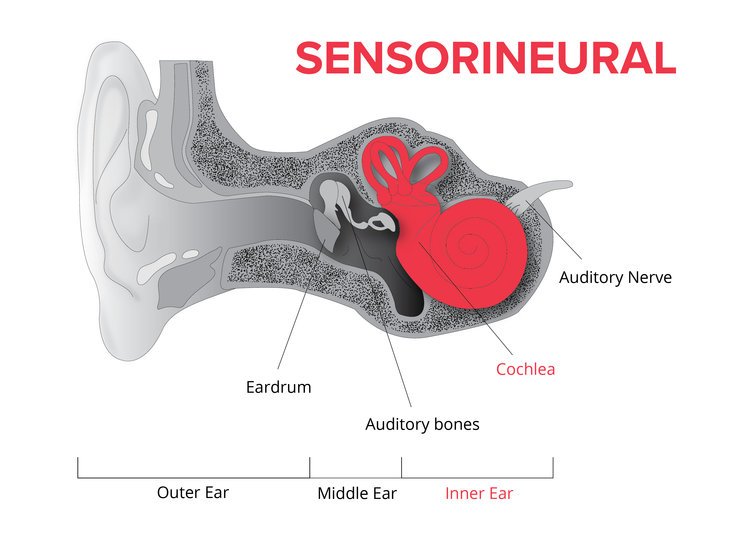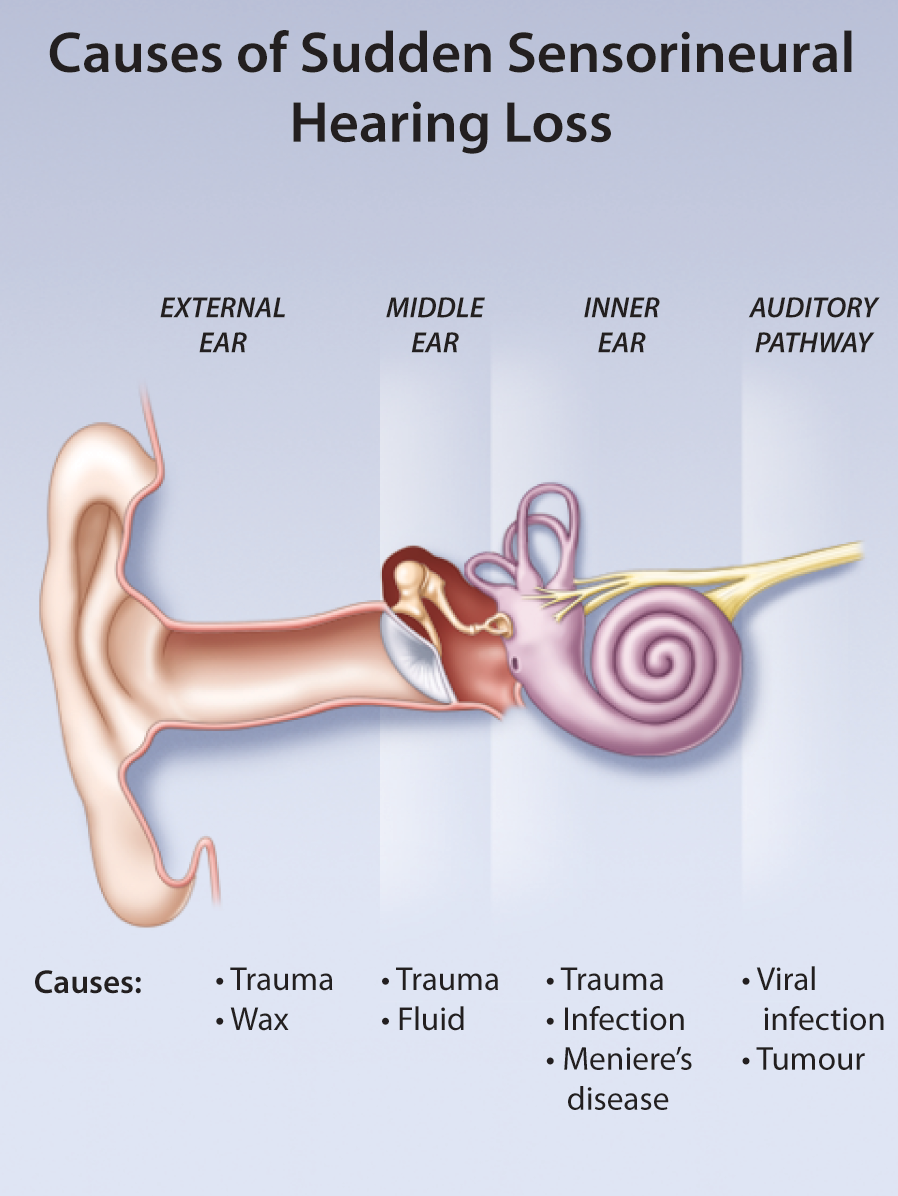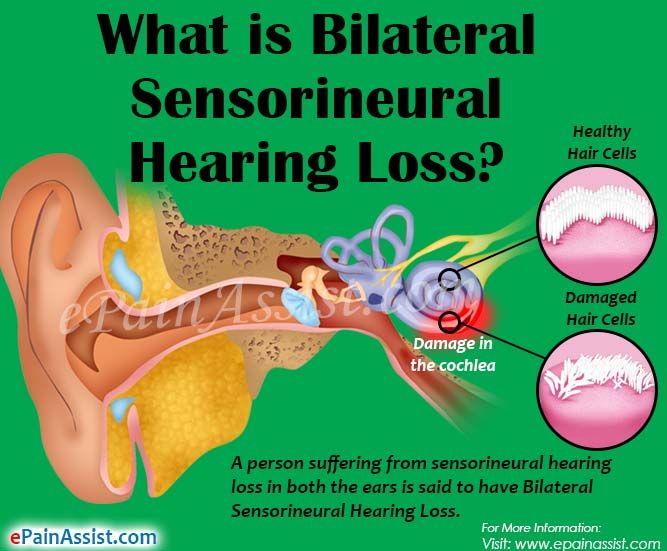The Largest Complaint With Those With Sensorineural Hearing Loss Is Background Noise Interference
I hear it multiple times a day phrased different ways such as: In a restaurant, I cant hear the person next to me but I hear the person across the room. Or, I hear all the children playing and crying in church but I cant hear the pastor. Or when there are multiple people talking at a time I dont make out what anyone is saying.
There are a few problems occurring in this situation. This last week I wrote an in-depth article about the difference between hearing and listening.
In these situations, the hearing aid is doing it chief job which is providing the amplification to soft sounds however amplification is only hearing, it doesnt help the listening or understanding part. Listening is a cognitive task that is very difficult in background noise.
As a universal problem with persons who have a hearing loss is the difficulty separating the background noise out of the speech that is desired. This is difficult for normal hearing individuals too.
Generally, as we age, the task of understanding speech in background noise becomes increasingly difficult for even normal hearing individuals. It also is more of a problem for men than it is women. But the largest issue is that a hearing loss increases the load put on the processing capability of the brain .
The more noise you add, the more the pupils constrict, which indicates you try harder to figure out the words, but at a certain point the brain gives up and stops trying.
Reversing Sensorineural Hearing Loss
Once damaged, your auditory nerve and cilia cannot be repaired. But, depending on the severity of the damage, sensorineural hearing loss has been successfully treated with hearing aids or cochlear implants. There is, however, the possibility that your hearing loss isnt reversible.
Cochlear implants
A cochlear implant bypasses the injured or damaged portion of the auditory system and directly stimulates your auditory nerve. With a cochlear implant, many people even those with severe sensorineural hearing loss have been able to reverse hearing loss partially.
Whats The Difference Between Hearing Loss And Deafness
A person with hearing loss can still hear sounds well enough to participate in conversations. They can improve their hearing ability through hearing aids or other treatments.
Someone who is deaf can hear very little or nothing at all. Hearing aids and devices dont help. A person who is deaf may use sign language to communicate.
Read Also: Pairing Compilot
How To Treat Conductive Hearing Loss
Conductive hearing loss is a common form of hearing loss that happens when damage or an obstruction to the outer or middle ear drum stops sound travelling through the ear to the ear drum and the minuscule bones of the inner ear.
Depending on its cause, conductive hearing loss can be temporary or permanent, although the good news is it is usually very treatable. This type of hearing loss has many possible causes, so if you feel you may be suffering from conductive hearing loss, its important to make an appointment with an audiologist as soon as possible. Here at the Hearing Centre we see many patients in our Leicester clinic in order to pinpoint the cause of conductive hearing loss and treat it appropriately.
Sudden Hearing Loss Causes

According to Harvard Health Publishing, sudden hearing loss is prevalent among people in their 50s and 60s. It generally affects only one ear and you may feel your hearing going away really fast â usually all at once in a matter of seconds or over a few hours. Most people experience it in the mornings after waking up and hear a loud âpopâ before they lose their hearing.
According to the National Institutes of Health, in most cases, the cause of sudden hearing loss is unknown but it may be triggered by the following:
- Ear infections
- Blocked blood flow to the ear
- A mass or tumor on or around the auditory nerve
Don’t Miss: How To Pair Compilot With Hearing Aids
Hearing Loss Experience Journal
The Hearing Loss Experience Journal is a collection of stories, pictures, and personal experiences contributed by children, teens, and young adults who are deaf or hard of hearing and their families. It represents the collective wisdom of these families as well as their health care providers. Read the journal here.
Four Levels Of Deafness
There are four levels of deafness or hearing impairment. These are:
- Mild deafness or mild hearing impairment: The person can only detect sounds between 25 and 29 decibels . They may find it hard to understand the words other people are saying, especially if there is a lot of background noise.
- Moderate deafness or moderate hearing impairment: The person can only detect sounds between 40 and 69 dB. Following a conversation using hearing alone is very difficult without using a hearing aid.
- Severe deafness: The person only hears sounds above 70 to 89 dB. A severely deaf person must either lip-read or use sign language in order to communicate, even if they have a hearing aid.
- Profound deafness: Anybody who cannot hear a sound below 90dB has profound deafness. Some people with profound deafness cannot hear anything at all, at any decibel level. Communication is carried out using sign language, lip-reading, or reading and writing.
Also Check: Are You Hungry In Sign Language
How Is It Treated
Once diagnosed, many cases of conductive hearing loss can be easily treated at home. At the Hearing Centre, we treat many cases of conductive hearing loss by using a microsuction device to remove anything blocking the ear, which is normally a result in the build-up of earwax. The recommended course of treatment will depend on both the cause and the area of the ear that is being affected. We do not require a referral from your doctor to investigate conductive hearing loss and our sophisticated hearing test equipment ensures a thorough investigation and accurate diagnosis.
Who Is Most At Risk For Sensorineural Hearing Loss
People over the age of 65 tend to be more at risk for sensorineural hearing loss. It is estimated that 80% of 80-year-olds have sensorineural hearing loss due to aging.
It is also relatively common to have noise-induced hearing loss, and this can affect anyone. About 15% of Americans between ages 20 and 69 suffer from a noise-induced hearing loss.
You May Like: What Is Poop In Sign Language
How Do Hearing Aids Work And Who Are They Suitable For
All hearing aids have four essential components: a microphone, an amplifier, a receiver and a battery source. The microphone detects sound which is then amplified and delivered to the ear by the receiver.
Hearing aids are suitable for individuals with mild-severe sensorineural hearing loss.Your audiologist will help you select the device thats best for you.
Sudden Hearing Loss Recovery
Your stress levels could directly impact your recovery from sensorineural hearing loss.
A 2019 article published by the American Journal of Audiology studied a sample of 55 patients to examine the potential links between chronic stress and the success levels of steroid therapy for sudden sensorineural hearing loss. The study found that patients with both low and high stress levels had less success with steroid treatment than those with moderate stress levels.
Don’t Miss: How To Pair Compilot With Hearing Aids
Options For Hearing Loss Today
I sincerely hope that there is a medical cure for hearing loss but it quite possibly will not occur and be FDA approved before I retire from my career .
In my day job, I focus on the best options for treatment for hearing loss. The best options today are hearing aids for the vast majority of individuals or cochlear implants. Cochlear implants would only be considered if your hearing loss is in the severe-to-profound range, have very poor word recognition scores, and hearing aids are not working for you.
I know these options are not as exciting as a cure would be but they are the best that is currently available.
What I can profess is that the technology of hearing aids has advanced extremely fast over the last 10 years and hearing aids and cochlear implants are so much better than they used to be. Just like cell phones are so much better than they were 10 years ago, the same progress has been made with hearing aids. If you have a hearing loss and need to know more about hearing aids please look at our guide to how to choose a hearing aid.
Is Surgery To Correct Hearing Loss Right For You

Jun 12, 2018 | Hearing Loss
Hearing loss affects millions of Americans each day. If you have a disorder of the ear that affects your temporal bone, surgery to correct hearing loss could be used in conjunction with medical options to allow you to hear better, perhaps even at normal levels. Surgery doesnt restore normal hearing in every case, so its important to understand what types of surgery are likely to help which types of hearing loss.
You May Like: Ear Infection During Early Pregnancy
Read Also: Phonak Icom Pairing
Auditory Training And Rehab
Whether you are prescribed hearing aids or cochlear implants or another device, auditory training or rehab can help the brain relearn how to process noise into sound. Sometimes these exercises can be completed entirely at home, while others are more intensive, similar to visiting a physical or occupational therapist. But even listening to audiobooks or using smartphone apps to sharpen hearing can be helpful and reduce symptoms like listening fatigue.
Signs And Symptoms Of Hearing Loss
It’s not always easy to tell if you’re losing your hearing.
Common signs include:
- difficulty hearing other people clearly, and misunderstanding what they say, especially in noisy places
- asking people to repeat themselves
- listening to music or watching television loudly
- having to concentrate hard to hear what other people are saying, which can be tiring or stressful
The signs can be slightly different if you only have hearing loss in 1 ear or if a young child has hearing loss.
Read Also: Phonak Compilot Ii Pairing
The Three Types Of Hearing Loss
In general, there are three types of hearing loss:
Conductive hearing loss is less common and is the result of some kind of obstruction in the outer or middle ear. Common causes of conductive hearing loss include ear infections, perforated eardrums, benign tumors, impacted earwax, and genetic malformations of the ear.
However, sensorineural hearing loss is far more common.
How We Approach Sensorineural Hearing Loss
Our Audiology Program will perform the following tests:
- provide counseling to you and your family regarding the hearing loss
- recommend hearing aids and ways to maximize the use of residual hearing
- refer your child for additional language or developmental assessments
- direct you to community resources for educational or financial assistance
- refer your child to Habilitative Audiology to learn about the option of a cochlear implant if your child has a severe to profound hearing loss in both ears
Recommended Reading: How Did Beethoven Hearing Loss Affect His Music
How To Prevent And Treat Sensorineural Hearing Loss
by Atlanta Hearing Associates | Feb 16, 2017 | Hearing Loss Articles
Your chances of developing hearing loss at some point in your life are regretfully very high, even more so as you get older. In the United States, 48 million people report some amount of hearing loss, including almost two-thirds of adults age 70 and older.
Thats the reason its critical to understand hearing loss, so that you can detect the symptoms and take protective actions to reduce injury to your hearing. In this blog post, were going to zero in on the most widespread form of hearing loss: sensorineural hearing loss.
Science In Service Of Changing Care
One of the most frustrating experiences for ear specialists is seeing patients with SSNHL who suffered delay in diagnosis and missed the window of opportunity for oral steroid treatment. These patients are often desperate to try any measure that might regain some of their lost hearing. Intratympanic steroid treatment might be an answer for some of them. Despite the absence of denitive studies about its benet and risk, intratympanic steroid delivery is rapidly spreading as a treatment approach for inner ear diseases. Soon, it will become entrenched, even though scientic evidence of its efcacy is, at this point, still lacking.
Read Also: How To Pair Compilot With Hearing Aids
What Are The Complications Of Hearing Loss
Having hearing loss can make you feel disconnected from the world around you. You may become frustrated, irritable or angry. People with severe hearing loss can become anxious or depressed. Children with hearing loss may struggle in school and get poor grades. Studies also show a link between hearing loss in older adults and dementia.
What Causes Hearing Loss

Loud noises frequently cause hearing loss. Sometimes this exposure is sudden and short-term. Attending a loud concert or being close to a gun blast can damage hearing.
Long-term noise exposure affects many professions. Farmers, construction workers, musicians and military members are most at risk. Occupational hearing loss is a top work-related illness in the U.S.
Other risk factors that raise your likelihood of hearing loss include:
- Congenital conditions such as cytomegalovirus .
Read Also: How To Say What Are You Doing In Sign Language
Reversing Conductive Hearing Loss
Depending on the nature and extent of the problem, people with conductive hearing loss can get some or even most of their hearing back. However, not everyone can reverse or regain their hearing loss.
Blockage removal
Wax and foreign objects can be removed, sometimes noninvasively. Bacterial infections can be treated with antibiotics. Growths can be surgically removed.
Other treatments
Your doctor might not be able to medically restore your hearing if you have conductive hearing loss caused by abnormalities such as:
- stenosis of the ear canal, which is when your ear canal is abnormally narrow
- exostoses, or the thickening of the bone surrounding your ear canal
- otosclerosis, the abnormal bone growth around the stapes bone in your middle ear
- ossicular chain discontinuity, or the abnormal separation of the middle ear bones: malleus, incus, and stapes
Although the medical options are limited, your doctor might offer solutions such as:
- traditional hearing aids
- middle ear implants
Hearing Health: Sensorineural Hearing Loss
As one of the most common types of hearing loss, sensorineural hearing loss is well-researched and fairly treatable. If you or a loved one has been diagnosed or is seeking a diagnosis, here’s some information to help you learn more.
Készült 11 October 2021
About hearing
When it comes to hearing loss, sensorineural hearing loss is the most pervasive. In fact, most people over a certain age experience some level of sensorineural hearing loss. Like our eyesight and memory, our sense of hearing can deteriorate over time. If you or a loved one is having trouble hearing or making out certain sounds, they might be suffering from sensorineural hearing loss. This article will touch on what this is, how it can be treated, and how to recognize it before it begins seriously affecting your life and relationships.
Don’t Miss: What Is Poop In Sign Language
When To Get Medical Help
A GP can help if you think you’re losing your hearing.
- if you or your child suddenly lose hearing , call a GP or NHS 111 as soon as possible
- if you think your or your child’s hearing is getting gradually worse, make an appointment to see a GP
- if you’re concerned about a friend’s or family member’s hearing, encourage them to see a GP
The GP will ask about your symptoms and look inside your ears using a small handheld torch with a magnifying lens. They can also do some simple checks of your hearing.
If needed, they can refer you to a specialist for more hearing tests.
Sensorineural Hearing Loss Prognosis
The outlook for people with SNHL is highly variable depending on the extent and cause of hearing loss. SNHL is the most common type of permanent hearing loss.
In cases of sudden SSHL, the Hearing Loss Association of America says that 85 percent of people will experience at least a partial recovery if theyre treated by an ear, nose, and throat doctor. About of people regain their hearing spontaneously within 2 weeks.
Don’t Miss: Which Composer Experienced Severe Hearing Loss During His Lifetime
What Are The Symptoms Of Hearing Loss
Hearing loss can happen gradually. You might not even notice youre losing your hearing.
Most people dont have any pain with hearing loss. Instead, you might notice you:
- Ask people to repeat themselves often.
- Cant follow a conversation or think other people mumble.
- Cant hear certain high-pitched sounds, like birds singing.
- Need to turn up the volume on the TV or radio.
- Experience ringing in the ears , pain , a fluid sensation or pressure inside the ear.
Signs of hearing loss in children include:
- Not startling at loud noises.
- Not turning toward sounds or when you say the childs name .
- Responding to some but not all sounds.
- Saying huh? a lot.
- Speech delays, such as not saying dada or mama by age 1.
Who Might Have Hearing Loss
Hearing loss affects all ages, genders, races and ethnicities. Hearing loss in older adults is common, affecting 1 in 3 people older than 65, and half of people over 75. Age-related hearing loss is called presbycusis.
Hearing loss also affects infants and children. An estimated 2 in 1,000 infants are born with some type of hearing loss. Hearing loss in children is one of the most common birth defects. A condition that is present at birth is called a congenital condition.
Recommended Reading: What Is Poop In Sign Language